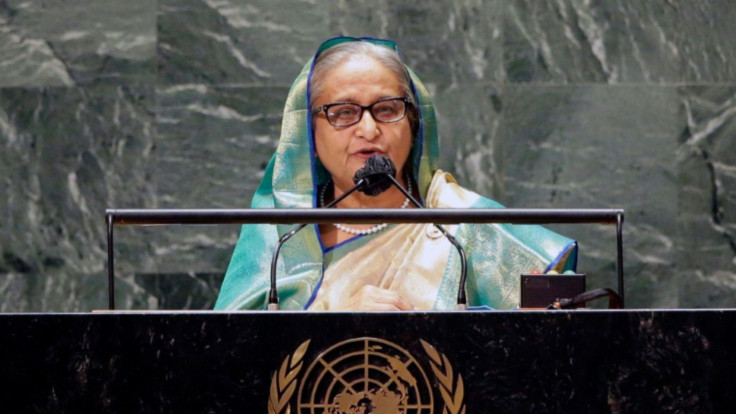Ex-Bangladeshi PM Sheikh Hasina Sentenced to Death Over Crackdown That Killed Up to 1,400 Protesters
Bangladesh's International Crimes Tribunal has sentenced former Prime Minister Sheikh Hasina to death for ordering a deadly crackdown on student-led protests in 2024 that killed up to 1,400 people.

Sheikh Hasina, Bangladesh's former prime minister, was sentenced to death on Monday after being found guilty of crimes against humanity for ordering a deadly crackdown on student-led protests that killed up to 1,400 people and toppled her 15-year rule.
The verdict from Bangladesh's International Crimes Tribunal marks the most dramatic legal action against a former Bangladeshi leader in decades and comes just months before parliamentary elections scheduled for February.
The Charges Against Her
A three-judge panel ruled that Hasina, 78, was responsible for inciting hundreds of extrajudicial killings carried out by law enforcement during the July and August 2024 uprising. The courtroom, where victims' families were present, burst into applause as the sentence was announced.
Hasina faced five charges primarily related to inciting the murder of protesters, ordering demonstrators be hanged, and authorising the use of lethal weapons, drones and helicopters to suppress the unrest. According to a United Nations report, up to 1,400 people were killed and up to 25,000 were injured during the protests, mostly by security forces' gunfire.
What began as peaceful student demonstrations over civil service job quotas transformed into a nationwide push for Hasina's resignation. The turning point was a government crackdown in which prosecutors told the court they had uncovered evidence of Hasina's direct command to use lethal force. Former Home Minister Asaduzzaman Khan was also sentenced to death for his involvement, whilst a former police chief received five years after becoming a state witness.
Hasina's Response From Exile
Hasina, who has been living in self-imposed exile in India since fleeing on 5 August 2024, slammed the proceedings as 'biased and politically motivated'. She was tried in absentia and was not present in the Dhaka court.
'In their distasteful call for the death penalty, they reveal the brazen and murderous intent of extremist figures within the interim government to remove Bangladesh's last elected prime minister, and to nullify the Awami League as a political force', Hasina said in a statement following the verdict. She argued that she and Khan 'acted in good faith and were trying to minimise the loss of life' and that they had 'lost control of the situation'.
British lawyers acting on behalf of Hasina filed an urgent appeal with the UN last week, stating that the trial was 'manifestly unfair' and arguing that proceeding with a death sentence after such a flawed process would amount to a 'summary execution'.
Who Is Sheikh Hasina?
Hasina's political journey is one of tragedy, exile and power, inextricably linked to Bangladesh's history itself. She is the daughter of Sheikh Mujibur Rahman, Bangladesh's founding father who led the country's 1971 war for independence from Pakistan.
Following a 1975 military coup in which her father, mother and three brothers were assassinated, Hasina and her sister were forced into exile. She returned to Bangladesh in 1981 to lead her father's Awami League party and first became prime minister when the party won the 1996 election. After serving one term, she regained power in 2009 and ruled for 15 years until her overthrow last year.
Under her stewardship, Bangladesh experienced significant economic development. However, critics accused her government of corruption, democratic backsliding, authoritarianism and human rights abuses. As time went on, her rule was marked by mass arrests of political opponents and activists, forced disappearances and extrajudicial killings.
© Copyright IBTimes 2025. All rights reserved.


















